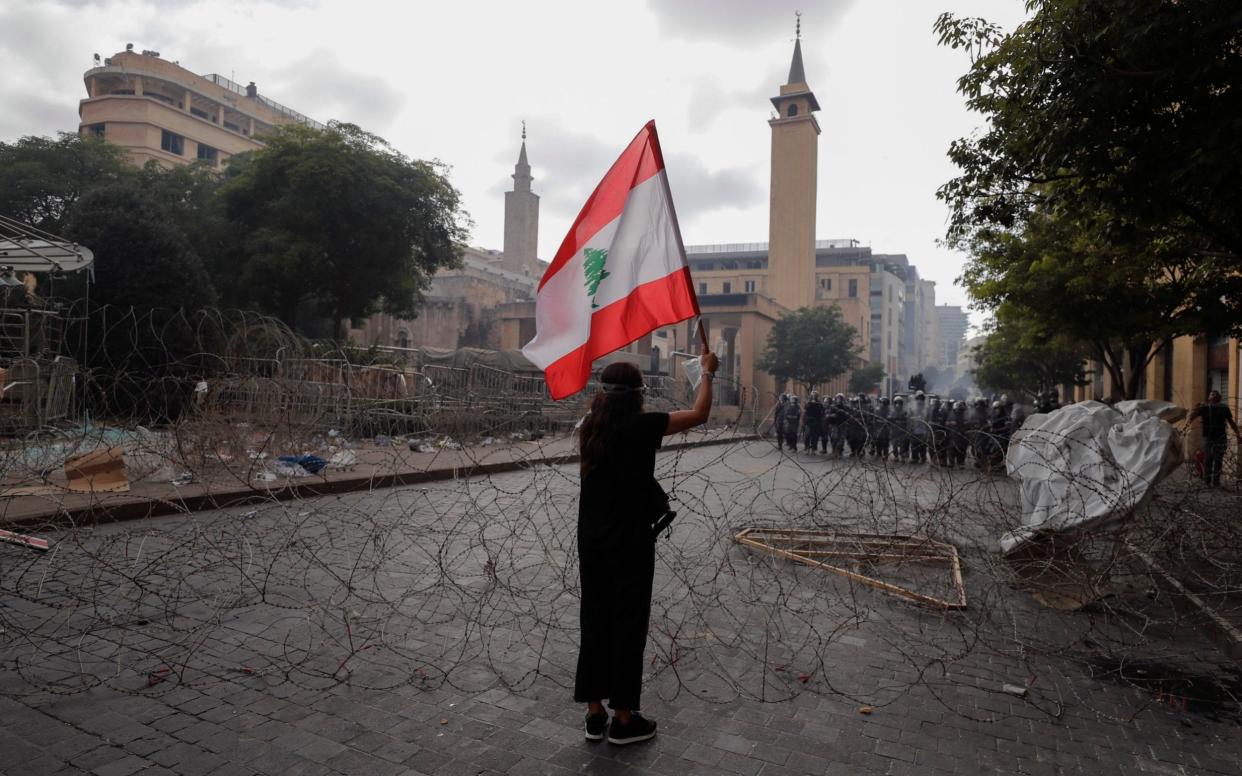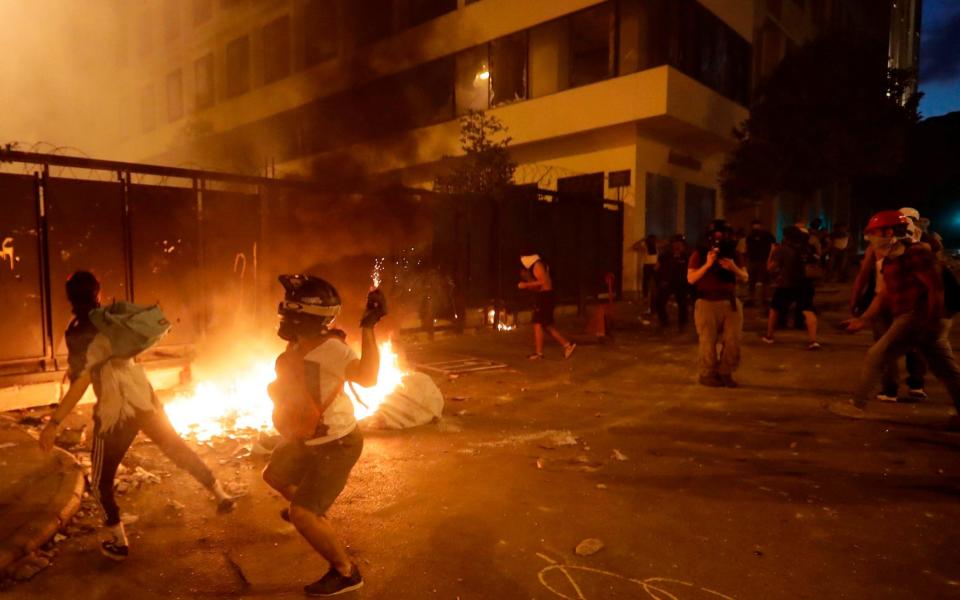Beirut blast: Two Lebanese ministers resign as protesters clash with security forces

Two Lebanese ministers resigned from the country's beleaguered government on Sunday in protest at the tragic explosion in Beirut that left at least 158 people dead.
Information minister Manal Abdel-Samad and environment minister Demianos Kattar, one of prime minister Hassan Diab’s closest advisers, both announced they were stepping down from the government, which is accused of gross negligence and failing to prevent the deadly blast.
Ms Abdel-Samad cited the government’s failure to enact reforms and the “Beirut catastrophe” as his two reasons for stepping down.
Mr Diab asked other ministers to delay their resignations until the results of a special Cabinet session, set to be held Monday afternoon, where a proposal by the prime minister to hold early elections is set to be discussed.
It came as protestors clashed with security forces for a second day in Beirut, with security forces firing tear gas and - according to some reports - live ammunition.
“We’ve reached the limit of what we can take. People were shot in the protests last night and still came down tonight. There’s nothing left to lose,” said protestor Maria Bitar, as chants of “revolution” rolled down the heavily fortified streets close to Lebanon’s Parliament building.
Tuesday’s blast is understood to have been caused by 2,750 tons of confiscated ammonium nitrate stored in Beirut port for the past six years. The chemical, most commonly used as a fertiliser, is highly explosive.
Beirut’s residents are seething that such a dangerous material was stored with so few precautions, so close to civilian areas. Over 6,000 were injured and several hundred thousand were left homeless with homes and businesses destroyed across whole neighbourhoods of the city.
“We live in a corrupt country and we cannot live this way anymore. We’ve had enough, we’re like living dead, like zombies in our own country,” said 26-year-old Anthony, wearing a gas mask to protect from the volleys of tear gas fired by security forces. “The government will be forced to give up before we do.”
Early elections were one of the key demands of the protest movement that flared up last October as Lebanon’s currency started to collapse, which forced the resignation of former Prime Minister Saad al-Hariri.
The Diab-led government was formed in mid-January, but has failed to turn around the country’s ailing fortunes. The currency has now lost 80 per cent of its official value, wiping out savings and livelihoods.

Mr Diab has argued his relatively young government is not responsible for Tuesday’s devastating explosion, but has faced massive public anger demanding the entire political class bear responsibility for the tragedy.
Lebanon’s top Christian Maronite cleric said the entire cabinet should resign as it cannot “change the way it governs.”
“The resignation of an MP or a minister is not enough ... the whole government should resign as it is unable to help the country recover,” Patriarch Bechara al-Rai said in his Sunday sermon.
Security forces said they were looking into reports of possible live fire during the previous day’s protests. Footage shared on social media appeared to show a plain clothes officer firing a handgun into a crowd of protestors, while a doctor from Beirut’s Hotel Dieu hospital shared a scan appearing to show a patient peppered with birdshot.
Meanwhile the Lebanese army said that hope was fading of finding any further survivors at the blast site at Beirut’s port, despite the arrival of international search and rescue teams.
"After three days of search and rescue operations we can say we have finished the first phase, which involved the possibility of finding survivors," Colonel Roger Khoury told a press conference.
The Lebanese owner of a cruise ship sunk by the explosion has said he would be filing a lawsuit against “all those responsible.” Two crew members of the Orient Queen were killed in the blast.


